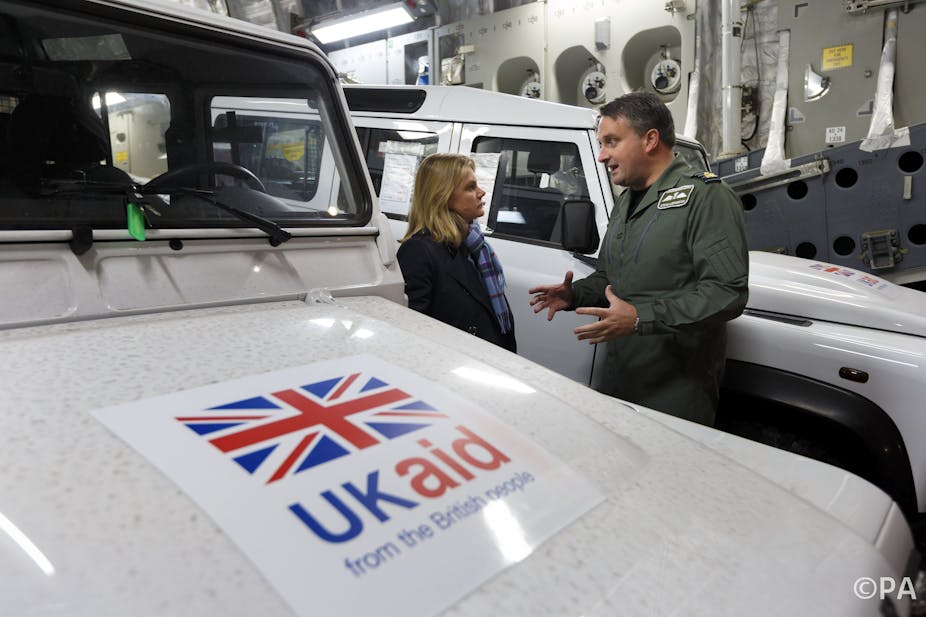International development secretary Justine Greening’s speech at the Conservative Party conference was a safe one. Recognising that many of the audience have criticised the need for the UK’s aid programme, Greening was quick to point out that the UK’s 0.7% contribution of GNP to aid was “not an optional extra.”
You could argue that the UK’s 0.7% GNP contribution to aid is pretty paltry; our defence budget, after all, is a lofty 2%. You could also argue that that 0.7% is too much, that charity begins first at home. But these arguments focus on the wrong things and are a distraction from the issues that matter most to creating a stable world, if not for us now, then for future generations.
Even though more than a quarter of Britons think aid is one of the government’s top three spending priorities, the Department for International Development’s budget is actually just a tiny percentage of public spending – and yet gives a substantial return. In just one example, UK aid will secure schooling for 11m children across the globe by 2015.
This means we’ll be helping to educate more children than we currently do in the whole of the UK at just a fortieth of the cost.
The numbers are impressive, but it’s not just about dazzling statistics. How the money is spent is critical – and the UK’s investment goes much further than digging wells and building schools, and indeed further than the range of humanitarian work that Greening listed.
Leading the world
While the minister emphasised that humanitarian aid is a crucial way to undercut extremism and terrorism, the department’s longer term work was very under-referenced.
No other country commissions development research on the scale that Britain does, or allows its research budgets to be spent where the talent is instead of confining it to a single institution. DFID’s research programme, which drives the creation of useful knowledge that improves lives and well-being, is unique in the world and makes the UK an exceptionally dynamic player.
Greening mentioned that aid is achieved by spending 1.5 pence in every pound of British spending – but she could have also mentioned that the UK is now extremely scrupulous about how its aid money is spent. The Independent Commission on Aid Impact evaluates DFID’s targets, and is the ultimate critic of our country’s development work.
Again, we are unique in having our national aid reviewed in such a manner. How many public or private sector organisations could survive such regular forensic investigations by specialist auditors?
Staying the course
Greening’s speech might have won over some naysayers, but the long-term success story needs to be driven home: our approach to aid is a smart one, and it’s indispensable for creating a better world. A good aid strategy doesn’t just look at short-term solutions, but addresses long-term structural issues that actually stop people from climbing out of poverty.
Our 0.7% contribution is not a drop in the ocean; it is a bar set for the leaders of the world, a call to match the UK’s investment. Let’s not forget that the 0.7% contribution was in fact an internationally agreed commitment, signed and reaffirmed in this very country in 2005 to global acclaim.
That we have led the world in meeting this target gives us serious credibility, and puts us at the heart of the global aid agenda; the money we spend and continue to spend will have a significant influence on how the rest of the world views and contributes to aid.
And this couldn’t be a more critical time: the UN General Assembly will soon be meeting to agree a new set of post-2015 development goals, where the UK will once again have to take a leading role.
Aid is only a part of the world’s efforts to fight poverty. But with its capacity to create the conditions for sustainable economic growth and political and civil stability, it is perhaps the single most crucial tool for building a more prosperous and stable world.

